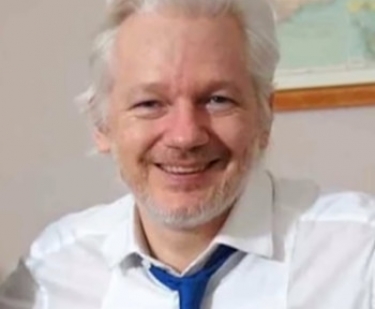But he did not win on all the points raised by his legal team; the High Court on Monday turned down his request for a direct appeal to the Supreme Court, but said the latter court could now determine if it would hear the challenge.
One of three points raised by Assange's lawyers was granted: whether the High Court should have accepted assurances given the US Government about his treatment during a trial were he extradited.
The team had asked: "In what circumstances can an appellate court receive assurances from a requesting state which were not before the court of first instance in extradition proceeding?"
|
|
On 10 December 2021, a two-bench High Court panel reversed a 4 January lower court verdict to deny the US the right to extradite Assange to try him on criminal charges in Washington.
British District Judge Vanessa Baraister had ruled that Assange should not be extradited, saying the risk he would commit suicide in a US jail was too high.
Assange faces criminal charges in the US for publishing classified information that was leaked to WikiLeaks by an American soldier, then known as Bradley Manning, but now, after gender reassignment surgery, known as Chelsea Manning.
While Assange's partner Stella Moris painted this as a victory, WikiLeaks official Kristinn Hrafnsson described it as a partial victory.
Reporters Without Borders Rebecca Vincent speaking today about Julian Assange's court victory: "This is a positive step but not far enough... this case is historical and will be hugely precedent setting... Julian Assange should be immediately released @RSF_inter #FreeAssangeNOW pic.twitter.com/SY0OleDXZM
— WikiLeaks (@wikileaks) January 24, 2022











































